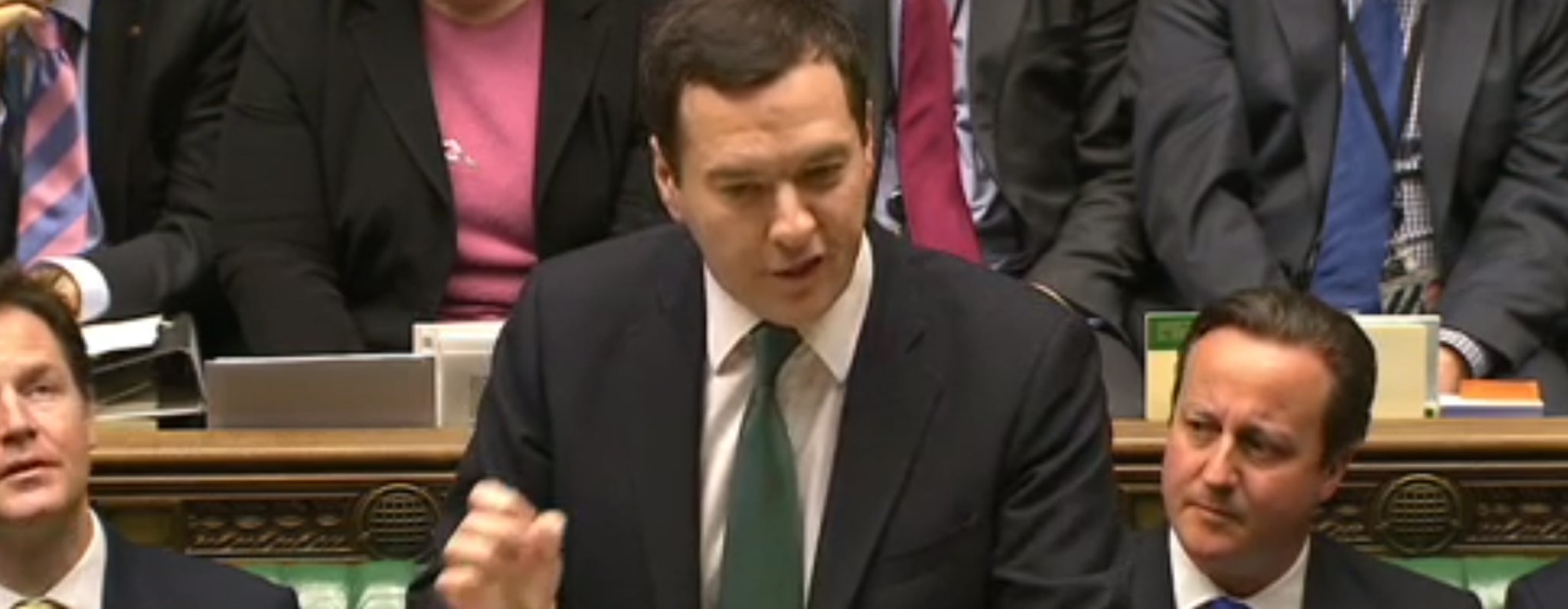It’s happening: George Osborne admits Tories will privatise student loans
The move, long rumoured, has finally been announced as part of plans to raise student numbers

It was a throwaway comment hidden at the tail end of a long Autumn Statement, but it was unquestionably there for those who cared to listen: “the new loans will be financed by selling the student loan book”. The chancellor, George Osborne, has made public his government’s long-rumoured plan to privatise the student loan system in England and Wales.
It was dropped in as the peg of another policy, that of removing the cap on the student numbers, to allow 60,000 extra young people every year to attend university from 2015.
Student campaigners are already up in arms about the proposals. Rachel Wenstone, the NUS vice president for higher education, said “yet another fire sale of the student loan book should be ringing alarm bells”.
“Using the sale of public assets to fund this project is a short-term fix because the current student loans system is completely unsustainable and this selling of public assets is stacking up problems for the next generation.”
“Osborne’s announcement today that the government will sell off the student loan book represents a massive attack on millions of people,” said Aaron Kiely, of the Student Assembly Against Austerity.
“As a secret report for the government has confirmed, the private debt collectors that will buy up our debts will seek to make as much profit as they can by raising interest rates. To put it bluntly, privatising student loans means a retrospective hike in tuition fees.
“Students and graduates are not going to tolerate being burdened with even more debt without a fight. The Student Assembly Against Austerity has called a major national week of action in early February to coordinate protests across the country demanding that the government drop this disgraceful policy.”
And on Twitter, Diane Abbott MP was equally unequivocal: “Osborne is going to privatise student loans. Higher interest rates for graduates”.
A spokesman for the Department of Business, Innovation and Skills, confirmed that student loans taken out between 1998 and 2012 have “the potential” to be sold “over the next five years”, but denied that terms and conditions for borrowers would change.
“Interest won’t go up, borrowers’ terms and conditions will not change, and the system will still be administered by the Student Loans Company and HMRC, collecting repayments via the PAYE system,” he said.
If completed, the sale of the loan book, which would be done in tranches, would deliver roughly £10-15 billion to the Government over a five-year period. However any future repayments of capital and interest from the loans that are sold will be lost.
A spokesman for the Russell Group of elite universities, meanwhile, said he was concerned at a policy that would grow student numbers so substantially.
“The Government has said additional student numbers will be paid for through the sale of student loans but only time will tell if this sale will fully meet the costs of this expansion.
“Providing higher education for everyone who wants it will require substantial long-term contributions from public funding and will present challenges for any future government that is unwilling or unable to continue to fund this.
Join our commenting forum
Join thought-provoking conversations, follow other Independent readers and see their replies
Comments
Bookmark popover
Removed from bookmarks